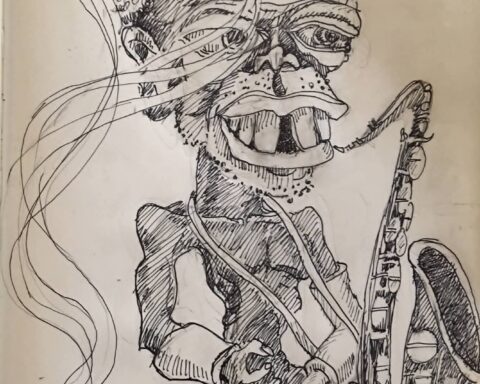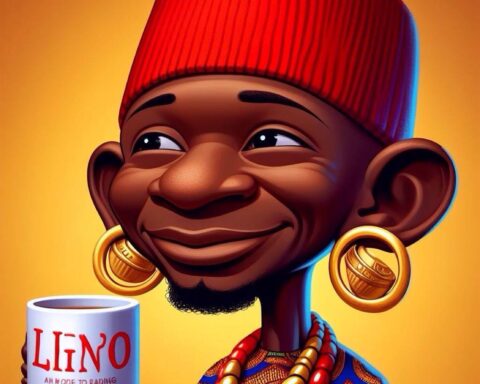By Dr. Charles Obiajulu Ugwu
There’s an invisible sermon humanity keeps preaching to itself that I will tag the Gospel of the Normal. It echoes in classrooms, boardrooms, churches, and parliaments. Its central creed is simple: fit in, stay within bounds, and life will reward you with safety, respect, and peace. We rarely question this creed, because we have built our entire notion of civilization on it. Yet, behind its calm promise lies a quiet, grinding loss, the slow erasure of the very individuality that makes us human.
Look around long enough, from the chaos of Lagos traffic to the manicured stillness of Silicon Valley campuses, and you’ll see the same choreography repeating itself. People striving, dressing, worshipping, even dreaming according to a script written by others. To live, it seems, is to conform and to conform is to survive. The world calls it wisdom. I call it domestication.
The well-behaved extinction
Conformity is one of civilization’s oldest currencies. It polishes the rough edges of our instincts and keeps chaos at bay. But somewhere along the line, this necessary tool became a tyrant. We began to value agreement over truth, predictability over originality. The result is a kind of well-behaved extinction — a humanity so obsessed with uniformity that it mistakes obedience for progress.
In the corporate world, this disease wears a tie and carries a performance scorecard. I once observed a brilliant analyst in a Nigerian conglomerate who challenged a flawed reporting system that inflated profits on paper but drained value in reality. Instead of being rewarded for insight, he was warned for “disrupting hierarchy.” Days later, a senior executive who echoed the CEO’s stale ideas was praised for “strategic alignment.” The organization, like many others, wasn’t seeking innovation rather it was seeking validation. That is how institutions die: not from lack of talent, but from suffocation by consensus.
The same story plays out in politics. During Nigeria’s last election cycle, a few candidates dared to question entrenched corruption and state waste. They were dismissed as “idealists.” Those who rehearsed predictable platitudes about “moving the nation forward” became the darlings of the electorate. Democracy, that grand experiment in difference, has been reduced to a contest of conformity where winning depends not on conviction, but on how well one mimics the status quo.
Even faith, that oldest search for meaning, has not escaped. In the loudest Pentecostal halls of Lagos or Accra, believers are told that to doubt is to sin, that questioning authority is rebellion against God. Spirituality has become a franchise business, complete with its own vocabulary, dress code, and performance metrics. The congregant who dares to ask “why” is quietly excommunicated, not by decree but by cold distance. The Church that once liberated slaves now manufactures obedience.
The false peace of agreement
Advocates of conformity often defend it as the glue that holds societies together, the price of peace and order. They argue that if everyone lived according to their impulses, anarchy would prevail. There is truth in that. Every civilization requires certain boundaries to function. But what they ignore is that the peace born of suppression is brittle; it lasts only until the human spirit begins to suffocate. History, from apartheid South Africa to Maoist China, teaches this lesson in brutal detail.
Even our economic order depends on conformance disguised as aspiration. The global middle class, so proud of its freedom, often lives trapped in debt, chasing symbols of belonging, the car, the house, the curated vacation. Social media amplifies this mimicry. We copy lifestyles, rehearse opinions, and mistake visibility for significance. The algorithm rewards sameness and punishes silence. What passes for individuality online is often mass-produced rebellion, a rebellion that still obeys the market.
Africa’s quiet captivity
Across modern Africa, conformity has acquired local flavors. It dresses as “respect for elders,” “cultural values,” or “God’s order.” The young Kenyan activist who questions political corruption is told to “be patient.” The Nigerian woman who leads fearlessly in corporate life is warned not to “intimidate men.” The Ghanaian artist whose work exposes moral decay is told to “tone it down for sponsors.” What we call politeness is sometimes nothing more than our fear of awakening.
We have learned to romanticize our restraint. Yet every major transformation on this continent from the liberation struggles of Nyerere and Nkrumah to the civic courage of Ken Saro-Wiwa and Wangari Maathai all began with someone’s refusal to conform. Fela Kuti’s saxophone was a weapon, not an instrument. Mandela’s endurance was not obedience, but disciplined defiance. Africa’s vitality has always been born from its inconvenient people represented by those who refuse to worship the normal.
The new obedience
But the danger today is subtler. The 21st century has produced a new breed of conformity dressed as sanitized, digitized, and voluntary. Young people everywhere, from Johannesburg to New York, speak the same moral language of “branding,” “influence,” and “staying relevant.” The goal is no longer truth or mastery but attention. We are living in an economy that monetizes imitation. To think differently is to risk invisibility.
Even in global institutions such as universities, think tanks, tech firms, diversity is often a slogan, not a practice. They hire for difference but promote for sameness. The modern meritocracy rewards those who challenge within the approved boundaries, not those who redefine the boundaries themselves. We have become so efficient at managing ideas that we have forgotten how to birth them.
The cost of fitting in
Every society pays for its conformity. Japan’s alarming youth suicide rates, the silent despair of middle-class professionals across Africa, the global epidemic of anxiety, all reveal a crisis of suppressed identity. When people are forced to perform versions of themselves for too long, something in the psyche begins to die. The damage rarely announces itself; it shows up as quiet fatigue, as depression disguised as diligence, as lives lived safely but without spark.
The poet Audre Lorde once wrote, “Your silence will not protect you.” Neither will your obedience. A world that demands conformity in exchange for belonging will eventually consume itself, for it breeds citizens who cannot think, leaders who cannot imagine, and institutions that cannot evolve.
The courage to differ
And yet, the antidote is not chaos. Humanity cannot survive on unfettered individualism. The task is balance which is the ability to coexist without surrendering the right to be distinct. True harmony is not uniformity but resonance: many voices, one song.
You can find this spirit alive in unexpected places. In Makoko, Lagos’ floating slum, young architects are designing schools that defy traditional planning codes, proving that innovation can emerge from constraint. In Rwanda, local cooperatives are reimagining post-genocide healing through community ownership a model born from trauma but steeped in originality. In Kenya’s tech hubs, coders are building open-source software in indigenous languages, insisting that progress must speak in the tongue of the people. These are not acts of rebellion for rebellion’s sake. They are declarations that creativity is a birthright, not a privilege.
Reclaiming the right to be
What is at stake is not just freedom but meaning. To live as an echo is to die before dying. The true measure of a society’s health is not how alike its citizens are, but how safely they can differ. A system that cannot tolerate deviation is one preparing for its own implosion.
The Roman Empire collapsed not from invasion but from its suffocating sameness. The same fate awaits any civilization across African, Western, or Asian that mistakes stability for vitality. The future belongs to those who can hold contradiction without fear.
Perhaps the next revolution will not come from political movements or technological leaps, but from something quieter: people reclaiming their right to live unedited lives. The teacher who decides to teach truth rather than curriculum. The civil servant who refuses a bribe though everyone insists it is “how things are done.” The young woman who chooses intellect over popularity. These small, stubborn acts of authenticity might be the only thing that saves us from the slow death of conformity.
The challenge is not to reject society, but to stop outsourcing our souls to it. The task of our time is to recover the audacity to differ to remember that every advance in human history began as a disobedient thought.
When next the world urges you to “be normal,” pause and ask: whose normal? For often, what the crowd calls sanity is merely the comfort of collective fear.
And when you find yourself standing alone, take heart. You are not lost. You are simply refusing extinction by imitation.
Author Bio:
Dr. Charles Obiajulu Ugwu is a management consultant, adaptability thought leader, and regenerative systems expert. As a contrarian with a flair for creative disruption, he writes on leadership, human transformation, and the evolution of meaning in modern societies. His forthcoming book, The Adaptability Quotient: Deconstructing the Fluid Mind Architecture, explores the cognitive foundations of change and resilience in a complex world.



























